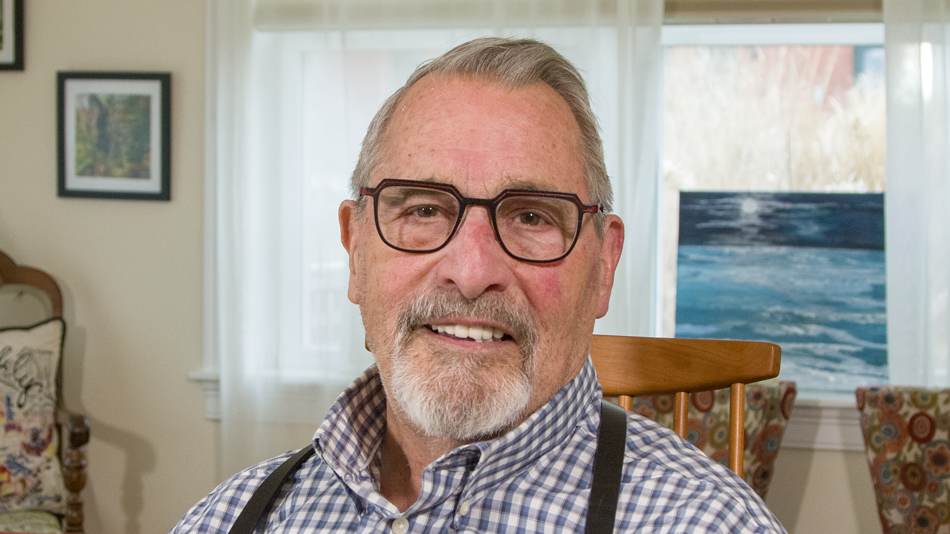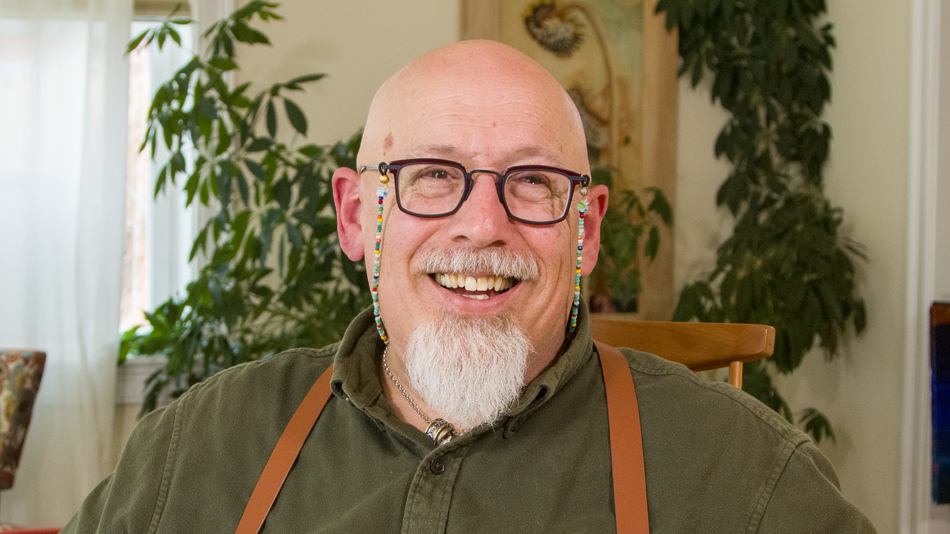And I did come from a very welcoming and compassionate family, but I think this was just like out of their wheelhouse too. They didn’t kick me to the curb, but they just didn’t really know what to do with me.
My name’s Wallace West and I’m from Houston, Texas.
Coming of age in very conservative Texas, that’s still very conservative, I didn’t see much of myself in movies. I was either making up love stories between two characters in The NeverEnding Story or I was seeing sort of a representation that very much wasn’t me.
I can remember a movie called To Be or Not To Be by Mel Brooks and the gay character in that is this very tragic sort of like thread throughout the story that doesn’t have a happy ending, like the heteronormative characters who are escaping Germany in that movie. I didn’t see anything that was just sort of like a normal existence, anything that was lighthearted, it was always a punchline or a tragedy or just something I was making up myself. For an art form that you love, you start to really second guess why you love it so much if you’re not seeing yourself in it.
Until that sophomore year in high school, 1994, I’m pretty sure that was the year, there was a movie called Priscilla: Queen of the Desert. I don’t remember how I heard about this movie. It must have been seeing it in People Magazine in the dentist office or something like that and I just knew that I had to get this movie on my radar and see this thing. I knew I was going to have the house to myself. I asked my mom, I was like, I showed her the Entertainment Guide. I was like, “It’s coming on Saturday at 7:00 PM. Can I watch this movie? Here’s the story,” and she gave me her blessing.
Sat down, house to myself, watched this movie and it was like, boom, like Dorothy walking through that door in Wizard of Oz from black and white into color. I saw three main characters, not like sideline characters, not punchlines, not jokes, nothing tragic going on. A trans character, two gay characters who were living their best life as drag performers, driving through all these conservative towns in Australia that were not too dissimilar from the conservative towns that I knew in rural Texas and doing the most courageous things. I know it sounds sort of trite to somebody to say just walking down the street is courageous, but walking down the street in full drag in conservative Australia in this ex-mining town was the bravest thing I’d ever seen on film and I’d seen a lot of movies. I’d seen Star Wars, Indiana Jones, all those things, very brave things happening, but this was the bravest thing I’d ever seen.
I thought, “Okay, I know this isn’t a documentary, I know these are fictional characters, but the fact that the critics are really loving this film, that so many people are loving this film, that this film is winning an Oscar for best costuming said to me that people are appreciating people like me in film, so they must by default appreciate people like me in real life,”
And I did come from a very welcoming and compassionate family, but I think this was just like out of their wheelhouse too. They didn’t kick me to the curb, but they just didn’t really know what to do with me. I mean, I was the kid who was wearing a bandana around my neck and calling it a dress and telling my family my name was going to be Mary and then amending that to Clara when I saw that the main character in the Nutcracker was Clara, so I was like just this whole new beast of a kid to contend with.
Not too long after that, I came out. Not too long after that, I had my boyfriend or started making out with boys and it was great. Seeing these characters just gave me the courage to really live as out loud as I possibly could. Yes, I was still going to be nervous. Yes, these weren’t real people, but there was something about the public reception of this movie that really gave me the courage to be braver than I had been before.
There was this thing coming up called The Senior Showoffs our senior year, this coveted position for the MC. There were, I think, four or six positions. My best friend and I tried off for it. Miraculously for us, not to everyone else I suppose because we were such cut ups, got two slots for these MCs. Part of our job was to do the fillers between the main acts. I guess sort of like the Writer’s Room in Saturday Night Live, we were the writers and we had to come up with these skits. There is this PSA for a drug-free America, thank you Nancy Reagan, and I think that the father has found weed in the kid’s room and he’s asking the kid where he learned to smoke this weed and the kid says, “From you, I learned it from watching you.”
I pitched this to the other MCs. I was like, “I want to do this except I want the kid to be in half-ass drag and I want to be in full drag and just come out in full drag and that not be the joke until the kid actually says something to it. Somehow the audience got it too and they were like, “I don’t think we’re supposed to be laughing at the dad. I think this is like a very normal moment for the dad,” the dad being me, and it wasn’t until the kid said, “I learned it by watching you,” and pointed at me that the whole audience got the joke just at the right time and I like, “Oh my God, how did we take this suburban Texas audience and get them in on the joke without laughing at me before the joke was even told?
Being someone who works in marketing and in advertising and having my own illustrated book that I’ve written and illustrated coming out with queer characters in, it’s been my mission the older I’ve gotten to be like I don’t want to be like sort of a secret or sort of like a coded language that this person is queer, this person is gay or this is someone in the LGBTQ community, I want it to be very out loud and very direct. And that not just be the story, but that be who that person is.
So thank you, Priscilla: Queen of the Desert, thank you Entertainment Guide and thank you for my mom for having the wherewithal to realize this was like a Testament to who I was and I needed to see this movie.








Share